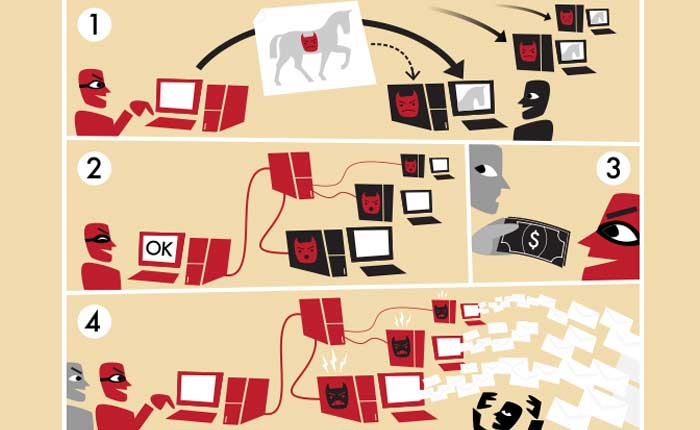New Delhi is the worst place in India for those wishing to access the Internet considering that it recorded a very high percentage of malware infections in 2014. Finnish security firm F-Secure, calls it the ‘top malicious city’ with regards to the web since corporate as well as regular users face an extremely high risk of being attacked by hackers.
F-Sercure’s ‘The state of Internet in India’ says that Hyderabad and Chennai are thought to be relatively safer for users wishing to access the Internet owing to their relatively low 9 percent (each) of malware incidences. The AAP which currently holds sway in Delhi are keen on offering public Wi-Fi for free all across the capital city.

Image credit: Tom-b on Wikipedia
Public Wi-Fi hotspots are very vulnerable to attacks by cyber-criminals and F-Secure is currently in talks with the Indian government to bag contracts to set up such wireless Internet zones in various states as well as Delhi, notes The Economic Times which refers to a post on PTI. ‘Botnet’ remains the top malware infection in the country, according to the report.
With it, hackers can take control of a victim’s PC and use it to send spam, launch DoS (Denial of Service) attacks or engage in other malicious criminal activities. Delhi, Mumbai, Chandigarh, Chennai and Gurgaon were in the list of top mobile infected cities last year with 9 percent, 22 percent, 10 percent, 8 percent and 8 percent malware incidences, respectively.
Also see: CERT-In issues warning about BrutPOS virus stealing debit and credit card info
With an increasing number of people taking to handling their money over the Internet, the ‘Ramnit’ malware that lifts usernames and passwords related to bank accounts was in the lineup of the top 5 malicious family detections in India along with Sality, Trogan.LNK.Gen, Trogan.Script and Virtob. The first mentioned is observed to infect systems through USB removable drives.
Seeing as the security software market in India is worth almost $200 million currently, along with an annual growth rate 20 to 22 percent, F-Secure will have plenty of room in which to maneuver. On another note, AAP’s vision of free public Wi-Fi access covering the whole of Delhi needs a reality check, by the looks of it.
